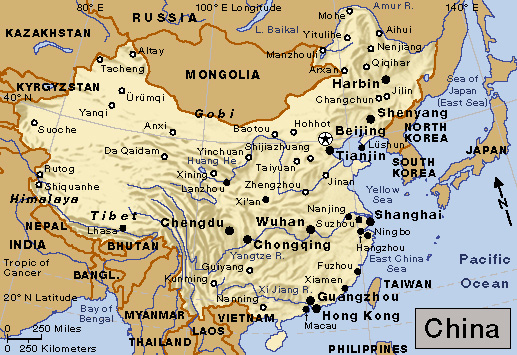Hangzhou, << hahng joh >> (pop. 6,650,000), is a tourist center and the capital of Zhejiang Province in China. The city’s name is also spelled Hang-chou. It lies on a bay about 100 miles (160 kilometers) southwest of Shanghai.

Hangzhou is noted for its fine silk and cotton textile products. Other industries in the area produce chemicals, electronic products, and medicines. Many tourists visit Hangzhou’s famous Xi Hu (West Lake). Along the shore, and on four islands in the lake, are many gardens, statues, and temples.
People settled in Hangzhou about 5,000 years ago. During the A.D. 500’s, it became a trading center and grew rapidly. In the 1100’s, the Song emperors made Hangzhou their capital. By the 1200’s, Hangzhou was one of the world’s largest cities. The city was badly damaged during the Taiping Rebellion (1850-1864) but was later rebuilt. Japan occupied Hangzhou from 1937 until the end of World War II in 1945. Most of Hangzhou’s heavy industries were developed after Chinese Communists conquered the country in 1949.
See also Zhejiang Province .
